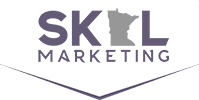Table of Contents
The Vital Role of Web Development for Small Businesses
As an organization deeply rooted in the digital marketing sphere, we at Skol Marketing, have witnessed firsthand how the landscape of business success has been reshaped by the web. In today’s bustling online marketplace, it’s pivotal for small businesses to establish a robust digital footprint. A web developer for small business is not just an option; it’s a crucial investment in the longevity and growth of a brand.
Embracing the complexities and nuances of the digital world can be daunting for small business owners. Yet, the march towards digitalization is inexorable. Partnering with a skilled web developer is the first step on this transformative journey. A well-crafted website serves as the digital storefront, greeting customers with both aesthetic style and functional ease.
In our work with diverse clients across various sectors, the pivotal role of web development in creating a brand’s online identity cannot be overstated. From sleek design to seamless navigation, every element crafted by a web developer stands as a testament to a business’s commitment to quality and customer experience.
Choosing the Right Web Developer for Your Small Business
Embarking on the search for a web developer for small business, a question often surfaces: What qualities should one look for? The answer lies not just in technical expertise but also in the ability to translate a business’s essence into a digital form.
Technical prowess in coding and design is a given, with proficiency in languages such as HTML, CSS, and JavaScript being the bedrock upon which web developers build. However, beyond the code, a great web developer is also an adept problem-solver, innovating solutions tailored to your business needs.
Solid communication skills are equally important. A developer who listens to your vision and communicates their ideas clearly can make the process much smoother. As we’ve worked with various businesses, those developers who foster a collaborative environment often deliver results that resonate more authentically with the brand’s voice.
Creating an Impactful Design with SEO in Mind
At Skol Marketing, the embrace of Search Engine Optimization (SEO) in web development is not merely a tactic but a foundational strategy. An effective web developer for small business not only crafts visually appealing sites but also weaves in SEO best practices to ensure visibility in the vast ocean of online content.
The utilization of keywords, meta tags, and responsive design are all elements that a competent developer will adeptly integrate into your website’s architecture. This not only improves the user experience but also signals to search engines that your site is a valuable resource, thus boosting your rankings.
In our experience, taking a holistic approach to SEO — from the structure of URLs to the optimization of images — can significantly impact a small business’s online presence. It’s a meticulous process that requires both skill and strategic foresight.
User Experience: A Top Priority in Web Development
A website should be more than just a pretty face; it must be user-friendly and accessible to all potential customers. This means creating a design that is intuitive and easy to navigate. A web developer for small business must prioritize the user experience (UX), ensuring that visitors can find what they need without frustration.
Leveraging analytics and user feedback, we’ve seen how websites optimized for UX lead to higher engagement and conversion rates. It’s about sculpting an online space where users feel understood and appreciated. A web developer with a keen eye for UX can make that a reality for your small business.
Web accessibility is another facet of UX that cannot be ignored. Ensuring that your site is navigable by individuals with disabilities is not only ethical but also expands your market reach. It’s a demonstration of inclusivity that can set your business apart in a crowded field.
Budgeting for Web Development: Customization vs. Cost
Engaging a web developer for small business often leads to discussions around budget. It’s a fine line between desiring a bespoke website and managing the realities of cost. In our counsel to clients, we emphasize the value of investment in quality development over short-term savings.
While templated designs can be cost-effective, they often lack the uniqueness and flexibility of a custom-built site. The initial investment in a tailor-made website can offer a significant return in terms of brand differentiation and scalability as your business evolves.
Yet, we also understand that every business operates within its own financial confines. In such cases, working with a developer who can skillfully customize templates to give a more personalized feel can be a viable compromise.
Ongoing Support and Maintenance: Keeping Your Site at Peak Performance
Our engagement with a web developer for small business doesn’t end with the launch of a site. Continuous support and maintenance are critical to ensuring that the website remains secure, functional, and up-to-date with the latest web standards and technologies.
Securing a maintenance agreement with your developer ensures that your website evolves alongside your business. This includes regular updates to content, improving features based on user feedback, and addressing any security vulnerabilities promptly.
Often overlooked, the post-launch phase of a website’s life cycle is as pivotal as its creation. A website that grows and adapts maintains its relevance in the fast-paced world of digital commerce.
Staying Ahead: Adapting to Emerging Trends and Technologies
Innovation doesn’t pause, and neither should your website. A forward-thinking web developer for small business is constantly attuned to emerging trends and technologies that could elevate your online presence.
Staying at the forefront means adopting new design trends, integrating cutting-edge functionalities, and exploring how evolving tech such as artificial intelligence can enhance the user experience. At Skol Marketing, we’ve seen how early adaptation to such trends can provide a competitive edge.
From progressive web apps that offer a native app-like experience to the implementation of voice search optimization, the possibilities for innovation are endless. It’s about future-proofing your small business in a digital world that never stands still.
Moving Beyond Web Development: A Holistic Digital Strategy
While a web developer for small business plays a central role in crafting your digital identity, it’s but one piece of the larger digital marketing puzzle. At Skol Marketing, we advocate for a holistic approach, where web development works in concert with SEO, pay-per-click advertising, social media, and content marketing strategies.
Each of these elements synergizes with the others to create a comprehensive and effective online marketing strategy. Within this ecosystem, your website acts as the nexus, supported and amplified by coordinated campaigns across various channels.
A web developer with a broad understanding of digital marketing can ensure that your site not only looks great but also functions as the core of a multimodal marketing strategy, driving growth and engagement.
Core Values and Client Partnerships: The Heart of Web Development
Finally, I reflect on the ethos that guides us at Skol Marketing. It all comes down to values and the relationships we build with our clients. A web developer for small business becomes an extension of the client’s vision and ambition.
It’s about more than just building websites; it’s about fostering partnerships based on trust, transparency, and a shared commitment to excellence. We invest personally in each project, understanding that the success of our clients is our success as well.
The convergence of technical skill, creative vision, and a dedication to client goals is what truly defines a successful web developer for small business. As we continue to forge meaningful collaborations, it’s these values that will remain at the forefront, propelling both our clients and us towards a brighter digital future.
How much does it cost to build a website for a small business?
As experts in web development at Skol Marketing, we understand that the cost of building a website for a small business can vary significantly depending on several factors. These include the complexity of the design, the functionality required, and whether you’re looking at a custom design or a template-based approach. Generally, a basic website can start anywhere from a few hundred dollars, while more sophisticated, custom-designed websites can run into the thousands. It’s about finding the right balance between your business needs and your budget. Remember, your website is an investment that can greatly enhance your business’s online presence and open doors to new customers.
How much should you charge as a web developer?
Charging as a web developer can be a nuanced topic, as rates typically reflect expertise, experience, and the project’s complexity. At Skol Marketing, we believe in providing value through quality service and results. New web developers may start with more modest rates to build their portfolio, often around $50-$75 per hour, while seasoned professionals might charge $100 an hour or more. We recommend evaluating the scope of work, the deliverables, and the value you bring to the table when setting your rates. It’s also important to consider the market prices and be transparent with your clients about what’s included in your fees.
How do I start a small web development business?
To start a small web development business, first, solidify your skills in web development and keep updated with the latest technologies. You’ll also want to choose a business model, create a compelling portfolio, and decide on your target market. It’s essential to develop a strong brand and online presence for yourself, as this reflects your capabilities in the industry. Networking, both online and offline, can open opportunities, and don’t forget to set clear processes for managing projects and clients. Look to organizations like ours, Skol Marketing, for inspiration and guidance on best practices in starting and growing your web development business.
Can web developers start their own business?
Absolutely, web developers can start their own businesses, and many do. Starting your own web development business requires not just technical skills, but also an entrepreneurial mindset. You’ll need to be prepared to wear multiple hats, from developing websites to marketing your services and managing the administrative side of the business. It’s a rewarding path for those with the dedication to build and grow a business. At Skol Marketing, for instance, we’ve taken our expertise and channeled it into creating a successful digital marketing agency that supports businesses in achieving their digital goals.
What are the key components of an impactful SEO strategy for a small business website?
An impactful SEO strategy for a small business website should focus on several core components. Keyword research is essential to understand what your audience is searching for. On-page optimization, including meta tags, headers, and quality content, is crucial for search engines to index your site effectively. Don’t forget off-page factors like building authoritative backlinks. At Skol Marketing, we also stress the importance of technical SEO: ensuring the website is fast, mobile-friendly, and provides a good user experience. Implementing these components can yield significant improvements in search visibility and traffic for a small business website.
How can small businesses keep their websites up-to-date with the latest web technologies and trends?
Keeping up with the latest web technologies and trends is crucial for staying competitive. Small businesses should regularly review and update their websites. One approach is to follow industry publications, participate in web development forums, and attend conferences or webinars. Collaborating with a dynamic web development agency, like Skol Marketing, can be a game-changer, as we’re always on the cusp of new technologies that can enhance your website’s performance and user experience. Additionally, consider incorporating feedback from your audience to continually improve and modernize your site in line with current user expectations.
Web Development Resources for Small Businesses
- U.S. Small Business Administration (SBA): Provides resources and tips for small businesses to get started with web development. Strengthen Your Online Presence
- Google for Small Business: Offers a range of tools and guides to help small businesses improve their online presence and grow. Google for Small Business
- W3Schools: Free tutorials and references on web development languages such as HTML, CSS, JavaScript, and more. Learn Web Development
- Mozilla Developer Network (MDN): Provides detailed documentation and learning resources for web technologies. Web Technology For Developers
- WebAIM (Web Accessibility In Mind): Offers information, resources, and tools to make your website accessible to people with disabilities. Web Accessibility Resources
- SCORE: Provides education and mentorship to small businesses. They have resources on creating a website for your business. Websites and Technology
- World Wide Web Consortium (W3C): Develops international standards for the web, including guidelines for accessibility. Web Standards
- American Marketing Association: Offers insights, education, and resources on various aspects of marketing, including digital and web marketing. Marketing Resources
- Search Engine Optimization (SEO) Starter Guide: Google’s official document on SEO best practices. SEO Starter Guide
- Internet Archive: Use the Wayback Machine to understand the evolution of web design and content trends over time. Explore the Wayback Machine
- Harvard Online Learning: Offers free and paid courses in various disciplines including web development, design, and digital marketing. Online Courses at Harvard




